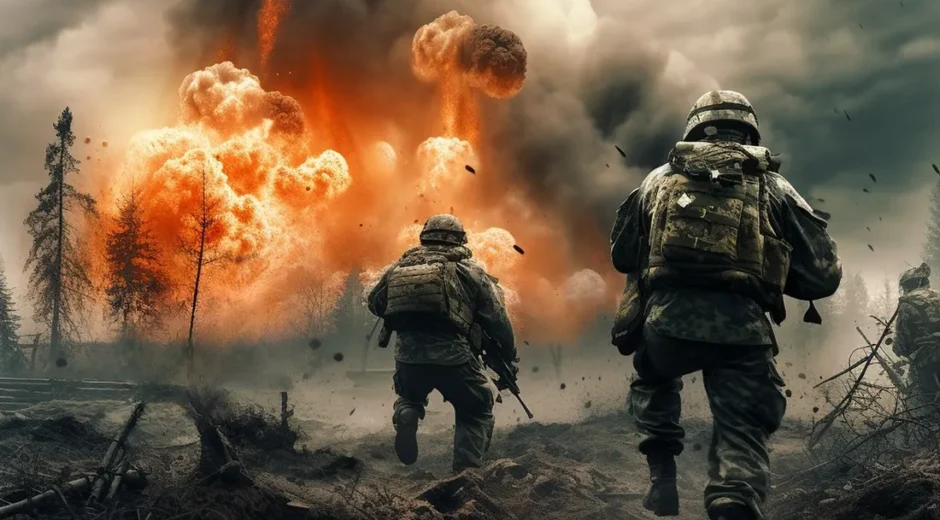The crime of aggression, as defined in international law, is the act of a state using armed force against the sovereignty, territorial integrity, or political independence of another state without justification. Often called the “supreme international crime” after World War II by the Nuremberg Tribunal, aggression sets the stage for countless atrocities, making it the fountainhead of much suffering in global affairs.
When one considers the modern global superpower — the United States — its relationship with the crime of aggression is complex, controversial, and politically charged. While America has historically championed ideals like democracy, freedom, and the rule of law, its foreign interventions often raise serious questions about whether it has lived up to these principles.
This article explores America’s complicated history with the crime of aggression, its leadership role in crafting international law, its frequent sidestepping of that very law, and the broader implications for the global order.
The Origins: Nuremberg and America’s Role
After the horror of World War II, the Allied powers sought to establish a system of international justice to prevent future atrocities. The Nuremberg Trials (1945–1946) prosecuted top Nazi officials for crimes against peace (aggression), war crimes, and crimes against humanity.
The chief American prosecutor, Robert H. Jackson, made a powerful statement:
“To initiate a war of aggression…is not only an international crime; it is the supreme international crime differing only from other war crimes in that it contains within itself the accumulated evil of the whole.”
Thus, it was American leadership that helped embed the crime of aggression into international law. This effort underscored a belief in holding even the most powerful to account — a radical notion at the time.
However, the question that echoes today is whether America has held itself to the same standard.
Defining Aggression: The Legal Struggle
The UN Charter (1945) outlaws the use of force except in cases of self-defense or when authorized by the UN Security Council. Still, despite its clear language, what actually constitutes an “act of aggression” remained hotly debated for decades.
In 2010, at the Kampala Review Conference, member states of the International Criminal Court (ICC) finally agreed on a definition of the crime of aggression, including illegal invasions, occupations, and bombardments.
Notably, the United States is not a party to the ICC’s jurisdiction over the crime of aggression. Although the U.S. signed the Rome Statute (the ICC’s founding treaty) under President Clinton in 2000, it later “unsigned” under President George W. Bush, fearing politically motivated prosecutions against American soldiers and leaders.
Thus, while the U.S. helped birth the very concept of punishing aggression, it has effectively insulated itself from that accountability.
America’s Record on Aggression
While it would be an oversimplification to claim that every American military action constitutes aggression, certain conflicts have drawn serious allegations. Let’s look at a few major examples.
Vietnam War (1955–1975)
America’s involvement in Vietnam escalated based on the Gulf of Tonkin incident (1964), which claimed North Vietnamese forces attacked U.S. ships. Subsequent revelations showed this event was either exaggerated or misrepresented.
The war resulted in over two million Vietnamese deaths, widespread destruction, and long-term environmental damage from chemical warfare (like Agent Orange).
Was it an act of aggression? Critics argue it was — an unjustified intervention in a civil conflict. Defenders claim it was part of a broader containment strategy against communism. Either way, it set a precedent for large-scale American military intervention without a direct existential threat to national security.
Iraq War (2003)
Perhaps the most cited example of modern American aggression is the invasion of Iraq in 2003.
The Bush administration, citing Saddam Hussein’s alleged weapons of mass destruction (WMDs) and supposed links to terrorism, led a coalition to invade Iraq. No WMDs were found, and the pretext for war crumbled.
The UN did not authorize the invasion. Leading figures worldwide, including then-UN Secretary-General Kofi Annan, declared the war illegal under international law.
The human cost was staggering: hundreds of thousands of Iraqi deaths, millions displaced, and the destabilization of the region, leading to the rise of ISIS.
In a just world, critics argue, American leaders responsible for the Iraq invasion would have faced accountability for the crime of aggression — just as Nazi leaders were tried at Nuremberg. Instead, they wrote memoirs, gave speeches, and returned to civilian life largely unscathed.
Other Incidents: Grenada, Panama, Libya
Grenada (1983): The U.S. invaded Grenada under the Reagan administration, citing the need to protect American citizens and restore democracy after a coup. The UN General Assembly declared the invasion “a flagrant violation of international law.”
Panama (1989): President George H.W. Bush ordered the invasion of Panama to oust Manuel Noriega, officially to safeguard U.S. citizens and “defend democracy.” Again, critics viewed it as naked aggression.
Libya (2011): Although initiated with UN backing to protect civilians during a civil war, the NATO-led intervention (with America playing a major role) quickly shifted into regime change, resulting in chaos that persists today.
American Exceptionalism and Legal Immunity
One reason America has evaded formal prosecution for acts of aggression is its belief in American exceptionalism — the idea that the U.S., due to its unique values and history, is not bound by the same rules as others.
In practice, this has meant opposing any international institution that might limit American freedom of action, from the ICC to the International Court of Justice. U.S. leaders often argue that American power is used for good, distinguishing it from the power of other states.
Yet critics argue that believing oneself uniquely virtuous is precisely the mindset that international law was designed to constrain. After all, every aggressor in history has claimed righteousness.
The Dangers of Double Standards
When powerful nations ignore the rules they helped create, it weakens the entire structure of international law.
Other countries notice. Russia cited American actions in Kosovo and Iraq to justify its annexation of Crimea. China looks at American flexibility on international norms and demands its own room to maneuver.
The message is clear: if the U.S. can bend or break the rules when convenient, why shouldn’t others?
This erosion of the rule of law increases global instability, undermining the very security that America seeks to protect.
A Glimmer of Hope: Toward Accountability?
Despite its reluctance to subject itself to international courts, there are signs of change.
Younger generations of Americans are increasingly skeptical of endless wars and foreign interventions. Political leaders, at least rhetorically, show more caution about using military force compared to past decades.
Some American legal scholars and politicians advocate for greater alignment with international legal norms, recognizing that true leadership means leading by example, not exemption.
Moreover, civil society — through journalism, activism, and public discourse — continues to shine a light on the consequences of aggression, demanding a more consistent moral standard.
Power and Responsibility
The United States’ relationship with the crime of aggression is a story of high ideals, staggering power, and painful contradictions. It helped craft the legal instruments meant to prevent aggressive wars — but has too often found reasons to circumvent them.
This dissonance matters. In a world where military power remains decisive, the refusal to hold even the mightiest accountable threatens the fragile fabric of international law.
America’s future credibility may well depend on whether it can reconcile its actions with its professed values. Leadership, after all, is not simply about power — it is about integrity, sacrifice, and the willingness to be held to the standards one demands of others.
As Robert Jackson warned in Nuremberg:
“We must never forget that the record on which we judge these defendants today is the record on which history will judge us tomorrow.”
https://discord.gg/4KeKwkqeeF
https://opensea.io/eyeofunity
https://rarible.com/eyeofunity
https://magiceden.io/u/eyeofunity
https://eyeofunity.com/
https://meteyeverse.com
https://00arcade.com
Source: www.medium.com




